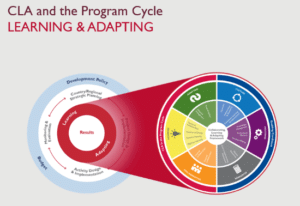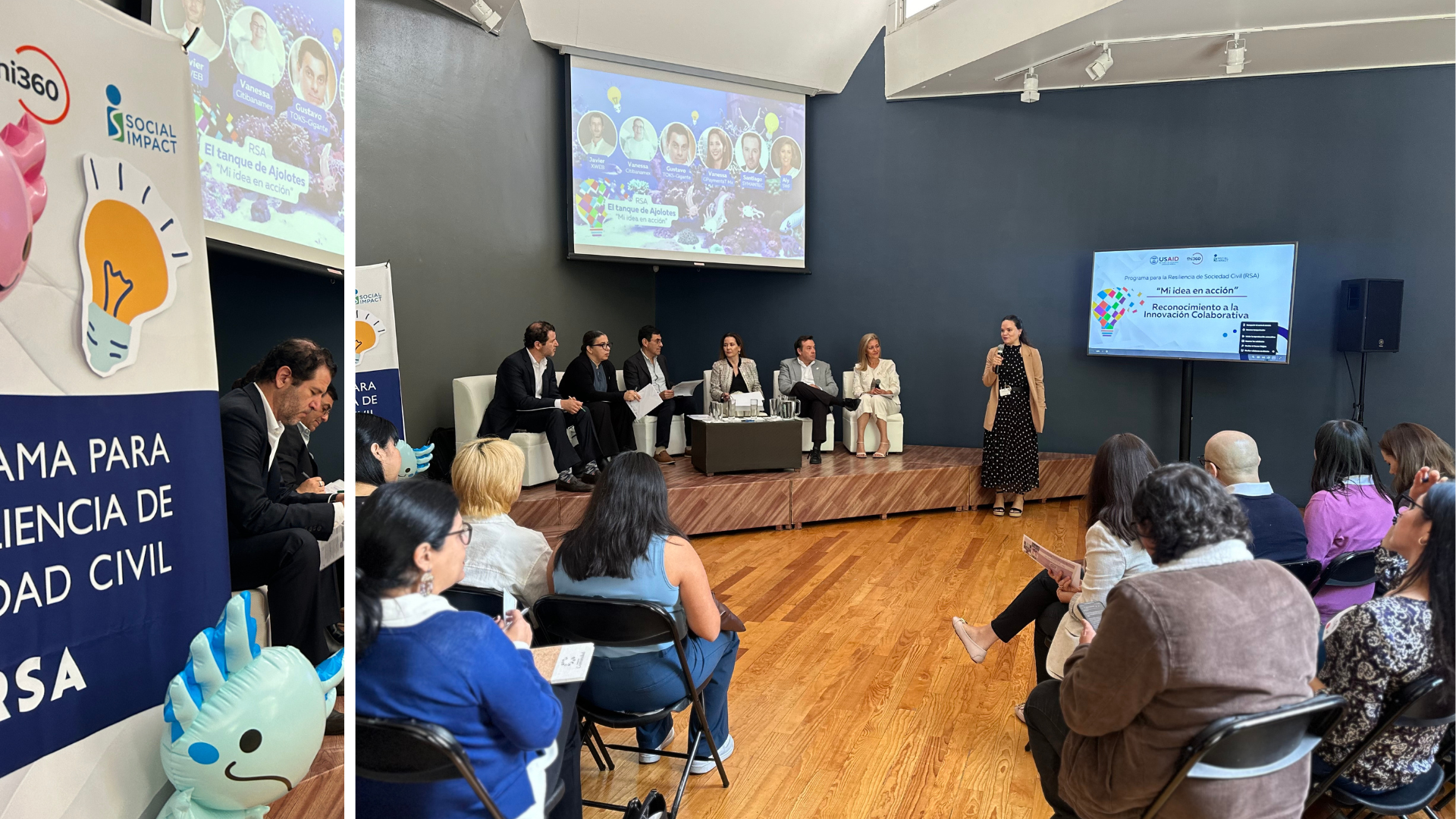By Leeann Whittson, Social Impact Intern for the EPMES Activity
In the face of the global COVID-19 pandemic, Social Impact (SI) has adapted to continue providing client services, including adopting innovative virtual training methods that helped to build knowledge and skills on monitoring, evaluation, and learning (MEL).
In addition to COVID-19 restrictions, SI’s team in Ethiopia faced an additional challenge: a low level of internet speed and accessibility. Since April 2020, SI’s Ethiopia Performance Monitoring and Evaluation Service (EPMES) has transitioned to providing virtual training for Ethiopian MEL firms and USAID/Ethiopia Implementing Partners (IPs).
Context

Collaborating, Learning, &; Adapting in the USAID Program Cycle
The trainings aimed to help USAID IPs plan, gather, and use learning more effectively in their work. For Ethiopian MEL firms, the focus was on strengthening their capacity, organizationally and in their work, to deliver MEL support services for USAID and others. Topics covered issues like USAID MEL policy guidance, performance management, Collaborating, Learning, and Adapting, and knowledge management.
With the transition to a protracted remote work environment in Ethiopia due to the ongoing COVID-19 pandemic, the team encountered new challenges. Ethiopia ranks in the bottom 30 countries globally for percentage of the population with reliable internet access.[1] Given COVID-19 restrictions established by the Government of Ethiopia in March 2020, in-person trainings were no longer a safe nor viable modality. Ethiopian partners were committed to participating in the planned trainings but had limited internet bandwidth and inconsistent connectivity due to frequent daily power outages across the country.
Making the Switch to Virtual Training
The EPMES team adapted existing training materials to enable participants to take the training while based at home and provided pre-recorded video training modules by overlaying trainers’ narrations and the materials. To incentivize active engagement, EPMES created tailored workbooks with individual, instead of group-based, practical exercises intended for participants to complete to earn their training certificates. Participants received the training materials from EPMES either through flash drives or via Google Drive.
EPMES prioritized participant flexibility by allowing participants to choose self-paced training, which gave the trainees several weeks to complete select modules on their own time. EPMES recruited co-facilitators from within each IP to support participants both with technical issues and to facilitate weekly group discussion calls. Each training iteration culminated in a final group practical exercise and Skype discussions.
Training Effectiveness
Although all participants prefer in-person training, they responded positively to the virtual training format. In mid- and post-training surveys given to the partners, all participants either agreed or strongly agreed that the training modules were both relevant to their work, and improved their practical knowledge of MEL topics. The vast majority (92%) of participants reported that the materials kept their attention throughout the training, implying the training was well-designed and responsive to participants’ needs. Participants anticipated that they would apply this new knowledge in daily work activities, use it to teach and train their staff, and apply the learning to help improve the performance of their organization.
EPMES designed the trainings with the intention that the application of training insights and knowledge will enhance the effective implementation of development activities for these partners and ultimately improve the lives of Ethiopian beneficiaries. Overcoming internet constraints, EPMES achieved their learning objectives by increasing the capacity of M&E Firms and IPs. As a broader lesson, this demonstrates the importance of learning and adapting in the context of development work, since the real world does not always respect your plans, and the ability to adapt and learn is crucial to achieving results in constrained environments.
[1] “Individuals using the Internet (% of population)”, International Telecommunication Union, World Telecommunication/ICT Development Report and database, https://data.worldbank.org/indicator/IT.NET.USER.ZS








